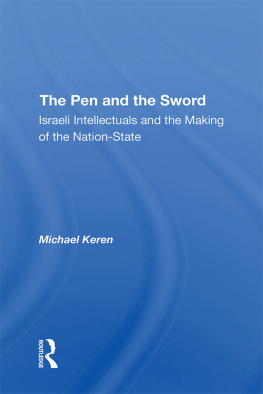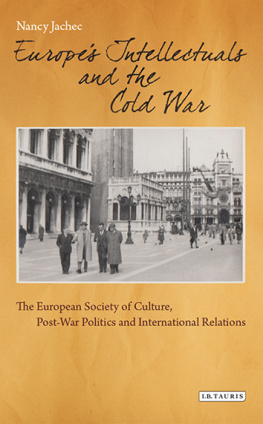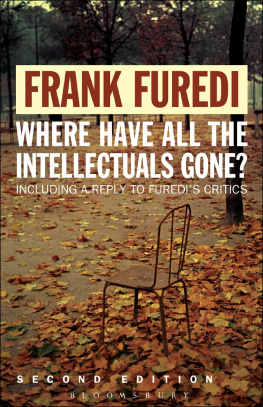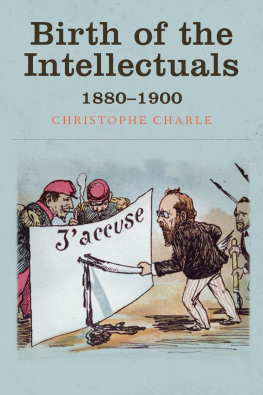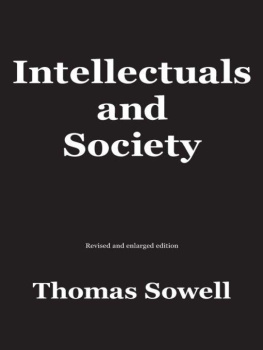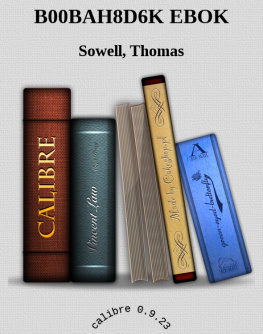



Transaction Publishers
New Brunswick (U.S.A.) and London (U.K.)
Fifth paperback printing 2014
New material this edition copyright 2007 by Transaction Publishers, New Brunswick, New Jersey. Originally published in 1928 by William Morrow & Company, New York.
All rights reserved under International and Pan-American Copyright Conventions. No part of this book may be reproduced or transmitted in any form or by any means, electronic or mechanical, including photocopy, recording, or any information storage and retrieval system, without prior permission in writing from the publisher. All inquiries should be addressed to Transaction Publishers, 10 Corporate Place South, Piscataway, New Jersey 08854. www.transactionpub.com
This book is printed on acid-free paper that meets the American National Standard for Permanence of Paper for Printed Library Materials.
Library of Congress Catalog Number: 2006050059
ISBN: 978-1-4128-0623-7
Printed in the United States of America
Library of Congress Cataloging-in-Publication Data
Benda, Julien, 1867-1956.
[Trahison des clercs. English]
The treason of the intellectuals / Julien Benda; with a new introduction by Roger Kimball; translated by Richard Aldington.
p. cm.
Includes bibliographical references.
ISBN 1-4128-0623-2 (alk. paper)
1. Intellectuals. 2. Nationalism. 3. Philosophy. I. Title.
HM213.B44 2006
305.5dc22
2006050059
The world is suffering from lack of faith
in a transcendental truth.
Renouvier.
Contents
The Treason of the Intellectuals and The Undoing of Thought
When hatred of culture becomes itself a part of culture, the life of the mind loses all meaning.
Alain Finkielkraut,
The Undoing of Thought
Today we are trying to spread knowledge everywhere. Who knows if in centuries to come there will not be universities for reestablishing our former ignorance?
Georg Christoph Lichtenberg
(17421799)
I
In 1927, the French essayist Julien Benda published his famous attack on the intellectual corruption of the age, La Trahison des clercs. I said famous, but perhaps once famous would have been more accurate. Today, only the title of the book, not its argument, enjoys currency. La trahison des clercs: it is one of those phrases that bristles with hints and associations without stating anything definite. The book itself, as Jacques Barzun said of Walter Bagehot, is well known without being known well. I hope that this new edition of this neglected classic will change that. La Trahison des clercs has never been more pertinent.
Benda tells us that he uses the term clerc in the medi eval sense to mean scribesomeone we would now call a member of the intelligentsia, an intellectual. Academics and journalists, pundits, moralists, and pontificators of all varieties are in this sense clercs. The English translation, The Treason of the Intellectuals, sums it up neatly.
The treason in question was the betrayal by the clerks of their vocation as men devoted to the life of the mind. From the time of the pre-Socratics, intellectuals, considered in this role, had been a breed apart. In Bendas terms, they were understood to be all those whose activity essentially is not the pursuit of practical aims, all those who seek their joy in the practice of an art or a science or a metaphysical speculation, in short in the possession of non-material advantages. Thanks to such men, Benda wrote, humanity did evil for two thousand years, but honored good. This contradiction was an honor to the human species, and formed the rift whereby civilization slipped into the world.
According to Benda, however, this situation was chang ing in the early decades of the twentieth century. More and more, intellectuals were abandoning their attachment to the traditional panoply of philosophical and scholarly ideals. One clear sign of the change was the attack on the Enlightenment ideal of universal humanity and the concomitant glorification of various particularisms. The attack on the universal went forward in social and political life as well as in the refined precincts of epistemology and metaphysics: Those who for centuries had exhorted men, at least theoretically, to deaden the feeling of their differences have now come to praise them, according to where the sermon is given, for their fidelity to the French soul the immutability of their German consciousness, for the fervor of their Italian hearts. In short, intellectuals began to immerse themselves in the unsettlingly practical and material world of political passions: precisely those passions, Benda observed, owing to which men rise up against other men, the chief of which are racial passions, class passions and national passions. The rift into which civilization had been wont to slip narrowed and threatened to close altogether. (It is a significant linguistic-historical fact that the term intellectuel entered the language in the 1890s in course of the Dreyfus Affair.)
Writing at a moment when ethnic and nationalistic hatreds were again threatening to tear Europe asunder, Bendas diagnosis assumed the lineaments of a prophecyone that continues to have deep resonance today. Our age is indeed the age of the intellectual organization of political hatreds he wrote. It will be one of its chief claims to notice in the moral history of humanity. There was no need to add that its place in moral history would be as a cautionary tale. In little more than a decade, Bendas prediction that, because of the great betrayal of the intellectuals, humanity was heading for the greatest and most perfect war ever seen in the world, would achieve a terrifying corroboration.
Julien Benda was not so nave as to believe that intellectuals as a class had ever entirely abstained from political involvement, or, indeed, from involvement in the realm of practical affairs. Nor did he believe that intellectuals, as citizens, necessarily should abstain from political commitment or practical affairs. The treason or betrayal he sought to publish concerned the way that intellectuals had lately allowed political commitment to insinuate itself into their understanding of the intellectual vocation as such. Increasingly, Benda claimed, politics was mingled with their work as artists, as men of learning, as philosophers. The ideal of disinterested judgment and faith in the universality of truth: such traditional guiding principles of intellectual life were more and more contemptuously deployed as masks when they were not jettisoned altogether. Benda castigated this development as the desire to abase the values of knowledge before the values of action.
In its crassest but perhaps also most powerful form, this desire led to that familiar phenomenon Benda dubbed the cult of success. It is summed up, he writes, in the teaching that says that when a will is successful that fact alone gives it a moral value, whereas the will which fails is for that reason alone deserving of contempt. In itself, this idea is hardly novel, as history from the Greek sophists on down reminds us. In Platos Gorgias, for instance, the sophist Callicles expresses his contempt for Socrates devotion to philosophy: I feel toward philosophers very much as I do toward those who lisp and play the child. Callicles taunts Socrates with the idea that the more powerful, the better, and the stronger are simply different words for the same thing. Successfully pursued, he insists, luxury and intemperance
Next page



